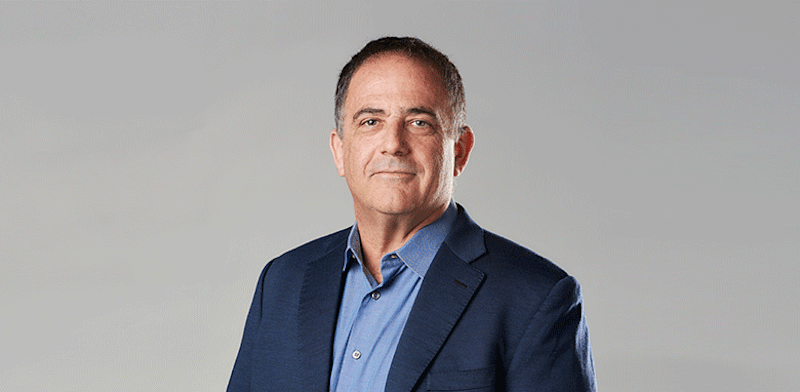A few weeks ago, I received a press release from TD Bank. The headline read: “76% of newcomers fear making financial mistakes.”
While I had my usual skepticism about what that number represents, I wasn’t surprised by the sentiment. Of course newcomers fear making financial mistakes. Would it be any less noteworthy if the number were 65% instead? Probably not. The point remains: newcomers are worried, and rightly so.
When you’ve just arrived in a country and you’re trying to make sense of systems that are unfamiliar, the fear of getting something wrong isn’t just rational, it’s expected. The Canadian financial system, for many, doesn’t feel like a place to build confidence; it feels like a labyrinth. For those still learning the language(s), navigating new jobs, figuring out where to live, and understanding cultural norms, the financial part can feel like one stress too many.
But something else in the report stood out to me and it subtly shifts the conversation. The data showed that 38% of newcomers reported little to no understanding of the Canadian banking system. That’s high. But 25% of the general Canadian population said the same thing. Similarly, 51% of newcomers said they didn’t understand how to invest money in Canada, compared to 35% of the broader population. The gaps are there, but what these numbers quietly suggest is that while newcomers may struggle more, many Canadians are struggling too.
This isn’t just a newcomer problem. It’s a Canadian problem.
Earning, saving and spending in Canada: A guide for new immigrants
Everyone’s staring at the same dishwasher
Understanding Canada’s financial system—especially through the eyes of a newcomer—often feels like trying to operate a dishwasher for the first time without knowing what it is or how it’s supposed to work. You know it’s meant to make life easier, but the buttons don’t make much sense, you’re unsure whether you’ve added the detergent correctly, and every unfamiliar sound makes you wonder if something’s gone wrong. After a while, it starts to feel safer to wash the dishes by hand—slower and less efficient, but at least familiar.
That’s how many of us approach banking, investing, taxes, insurance, and credit. These tools are designed to help us, yet figuring out how to use them—and, more importantly, how to trust that we’re using them correctly—can feel risky. The fear of getting it wrong often keeps people from even getting started.
I’ve lived in Canada for over six years and I work in the financial services industry, supporting organizations and spending a good deal of time thinking about how these systems function. Still, familiarity doesn’t always translate into confidence. Every year, I find myself hesitating over a relatively minor investing decision: what to do with the government match on my daughter’s registered education savings plan (RESP). It’s one small part of a much bigger plan for her education… a decision I’ve made before, but it still ties me up in knots. What should be simple ends up feeling complicated. I overthink it. I question what I know, and I hesitate.
X
In those moments, despite all the exposure and experience I’ve had, I still feel like I’m standing in front of that same dishwasher, unsure which button to press and worried that one wrong choice might set something off I can’t undo.
When trust disappears without warning
Not long ago, I got a call from my financial advisor—someone I’d built a relationship with over several years. She let me know, somewhat casually, that she’d moved branches and would be handing off my account to someone new.
I understand that people change roles and businesses reorganize, but this wasn’t just a logistical update—it meant losing the one person in the Canadian financial system I trusted. She’d taken the time to understand how I think, how I approach decisions, and how I sometimes spiral before settling on a choice. Now I was expected to trust someone new, just like that.
It felt like having your surgeon swapped the night before a procedure—not because the new person isn’t capable, but because trust doesn’t transfer. In something as emotional as money, especially when the system already feels overwhelming, trust matters.
That’s the part no survey captures. It’s not just about how much someone understands. It’s about how supported they feel, and whether they believe someone is walking the path with them instead of standing off in the distance, pointing them in a vague direction.
The bigger issue isn’t knowledge, it’s confidence
At the heart of it, what the TD survey is really saying—and what many of us feel but don’t always articulate—is that people fear making financial decisions because they don’t trust that they’ll get it right. And when you don’t feel confident, every step forward feels like a risk.
This fear is real for newcomers, but it’s also real for the person who’s lived in Canada their whole life and still feels anxious at tax time. It’s real for the couple trying to figure out if they’re saving enough. It’s real for the entrepreneur who feels like banking is something you endure, not engage with.
Speaking of entrepreneurs, another finding from the report stood out. Half of all newcomers said they’re interested in starting a business, but 62% reported not knowing enough about the financial products available to help them. That struck a chord.


























